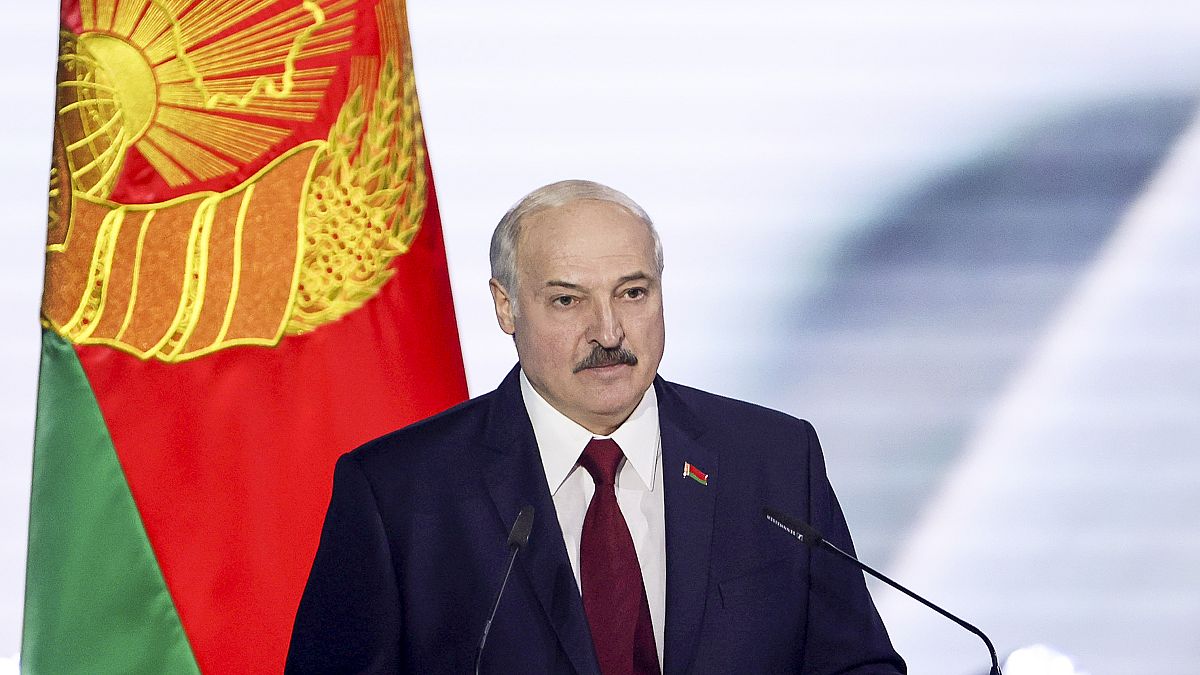Belarusian authorities have detained more than 1,000 participants in protests since the campaign's start.
Belarus's authoritarian leader warned of "harsh" sanctions against the opposition should it hold unsanctioned protests ahead of this weekend's election.
President Alexander Lukashenko vowed in a state-of-the-nation address on Tuesday that "the response (to unauthorised demonstrations) would be instant and the sanctions will be harsh".
Belarusian authorities have detained more than 1,000 participants in protests since the campaign's start.
Known as "Europe's last dictator", Lukashenko, 65, is facing one of the toughest challenges of his 26-year-rule in Sunday's presidential ballot.
Three women have united to defeat him: Veronika Tsepkalo, the wife of prominent opposition figure Valery Tsepkalo who was barred from running and subsequently fled the country over fears of being arrested; Maria Kolesnikova, the campaign chief of Viktor Babariko, another leading opposition figure barred from contesting after being arrested on charges of bribery; and Svetlana Tikhanovskaya, the wife of well-known blogger Sergei Tikhanovsky who is also unable to run after being detained on charges of attacking a police officer.
Tikhanovskaya successfully registered to run in the election and has promised to free political prisoners and hold new and fair elections if she wins.
A leaked survey from a Russia-based pollster found that although Lukashenko is to come out on top in the first round with 55.2 per cent, his lead would erode to just 50.5 per cent in the second round. Meanwhile, a poll authorised by the Belarusian government credited the incumbent president with 87.8 per cent of the vote in the first round.
Lukashenko 'very nervous'
Lukashenko's grip on power is loosening as discontent grows in the country's over widespread corruption, the economy and his handling of the COVID-19 pandemic.
Katia Glod, a former election observer in Belarus, told Euronews that "a lot" of Lukashenko's speech "was basically just a threat to public officials, saying that they should by all means not betray him".
"He definitely was very emotional, very scared and you could see there was not enough clarity in what he was saying. He was just resorting to emotional remarks and threats," she added.
He claimed in his speech that the opposition is backed by foreign powers and that only he could provide stability for the country.
He is also walking an increasingly tight line with Russia.
He vowed for instance to maintain a close alliance with Moscow, arguing that "Russia has always been and will remain our close ally irrespective of who takes power in Belarus or Russia" while declaring in the next breath that 33 Russian citizens detained last week had been sent to stage mass riots.
Moscow has denied the accusations.
'Massacre in Minsk'
Lukashenko also claimed that another group of "militants" had been sent to southern Belarus. "We will have to run through the forests to catch them, but we will get them all," he said.
He then pointed to alleged plans to "organise a massacre in the centre of Minsk" but did not say who would be behind it.
Lukashenko has relied on cheap Russian energy and other subsidies and loans worth billions of dollars to shore up the Soviet-style economy in the nation of 9.5 million people. But at the same time, he has engaged in fierce economic arguments with the Kremlin, resisting Russian attempts to take control over Belarus's economic assets.
Russia this year has sharply scaled down its subsidies, saying Belarus needs to accept closer economic integration if it wants to receive Russian energy at a steep discount. Lukashenko has described the move as part of Moscow's efforts to subdue its neighbour.
